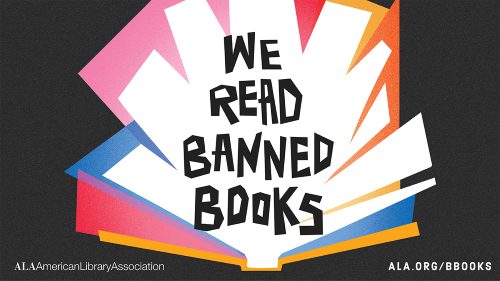Life was nasty, brutish and short. Many of us recall these famous words from Thomas Hobbes’ political treatise, Leviathan (1651). Fewer of us remember the context in which he described this state of humanity.
The Reading Room
Thomas Hobbes: Leviathan
Thomas Hobbes was a prominent 17th-century English political philosopher whose famous work preceded the formal Enlightenment Era (1685 - 1815). Hobbes’s, Leviathan, Locke’s Second Treatise on Government, and Rosseau’s, The Social Contract are often assigned reading for the beginning student of political theory. These thinkers were critical to the discourse on philosophical and political ideas while scientific discoveries, and advances in art, literature, and drama were spreading throughout Western Europe and across the Atlantic. In this new Age of Reason, ideas and experimentation were unleashed, while monarchical rule and church influence were being questioned. Ideals of individualism and liberty were embraced, eventually fought for, and then embedded into institutions and governments in the 17th and 18th century. Hobbes and other Enlightenment thinkers and authors have left us a legacy of readable prose, logical thinking, and pertinent arguments that resonate in today’s political climate. How lucky we are to have access to the writings of so many philosophers. “Banning” works from bookshelves won’t erase the ideas raised by great thinkers, but will certainly limit access to them. At what cost?
Questions about society’s need for government are age-old. The famous quotation from Hobbes’ book illustrated his argument about the state of well-being for people living in societies that were not formally governed. He believed that life was and would be “solitary, poor, nasty, brutish and short.” Hobbes wrote Leviathan in 1651, during the English Civil War (1642-1651) and was reacting to the uncertain resulting outcome. These famous words have been used ever since to describe a world without government, or “anarchy”. The first known use of the word anarchy appeared in plays by Aeschylus and Sophocles in the fifth century BC. The ancient Greek word ἀναρχία means “without” (av), “rulers” (apxia). While opposition to the “state” or to a governing entity such as a monarchy is central to anarchist thought, a definition of anarchism is not widely agreed upon by scholars.
Hobbes argued that widespread peace, prosperity, and cooperation could only be achieved in a society with a legitimate government. He argued for this protective entity over men due to “man’s self-interested nature”. In the effort of man toward self-preservation, conflict rather than cooperation would result. “If men were angels, no government would be necessary”. Because they (men) are not, Hobbes believed in the need for a government to save man from himself and from each other. (Should we assume this describes women as well?)
The point Hobbes was making in Leviathan was that a world without government was what he called “the state of nature”. In this ugly, natural state, war is the norm and life was described as, “...nasty, brutish and short.” In this misery, or “war of all against all”, peace could not be realized by a common-wealth of individuals. Certainly Hobbes held a depressingly dour view of humanity.
The title of his treatise is a biblical reference to the Leviathan, mentioned in the Book of Job. The image on the book’s cover represents God as a sovereign, absolute power. The drawing is believed to have been produced by the printer Andrew Cooke, under Hobbes’ supervision. A gigantic figure made of smaller bodies wields a sword and crozier while a banner streams above with the headline.
“There is no power over earth than compares to him, a creature without fear…king over all sons of pride”.
The drawing has been interpreted as Hobbes' use of metaphor to signify the artificial nature of the state that is a created entity. This is signified by the apparatus, springs, and wheels. In his first chapter, Of the Causes, Generation and Definition of a COMMON-WEALTH, Hobbes discussed the circumstances in which the artificial state is created and is authorized as the sovereign. (Springborg)
Hobbes favored a “legitimate government” that was rule by an absolute sovereign with whom the people held a social contract.
A critic of the Hobbesian view of man’s state of nature, and argument against the need for the state, is Anthony de Jasay, a political philosopher. In his book, The State, de Jasey questions the validity of Hobbes’ claim that war was the natural state of things. Are the passions of self-interest and the capacity to use might over another always the default behavior between men desiring the same scarce resources? Further, are the laws of the state necessary to curb this inevitable warring behavior? De Jasey argues that there are other ways that people, void of state directive, can address the fundamental problem of scarcity. One of these is commerce, the peaceful exchange of goods between parties that is known to exist since ancient times. Further, de Jasey argued that the size of the state would not only be large but continue to grow as contracts between parties are preserved and enforced.
Hobbes claimed the social contract between the people and the state was the way to eliminate the fighting among people for material gains and for safety. It would also lead to peaceful acceptance how power and wealth might be divided. He ultimately believed that people needed government in order to be protected from each other.
CitationsSpringborg, Paatricia, Hobbes Biblical Beasts, Leviathan and Behemoth, Sage Publications Inc. http://www.jstor.org/stable/191883.
De Jasay, Anthony, The State, Liberty Fund Inc, 1998De Jasey, Anthony, Is Leviathan Required for a Peaceful Order? EconLib, March 2016
